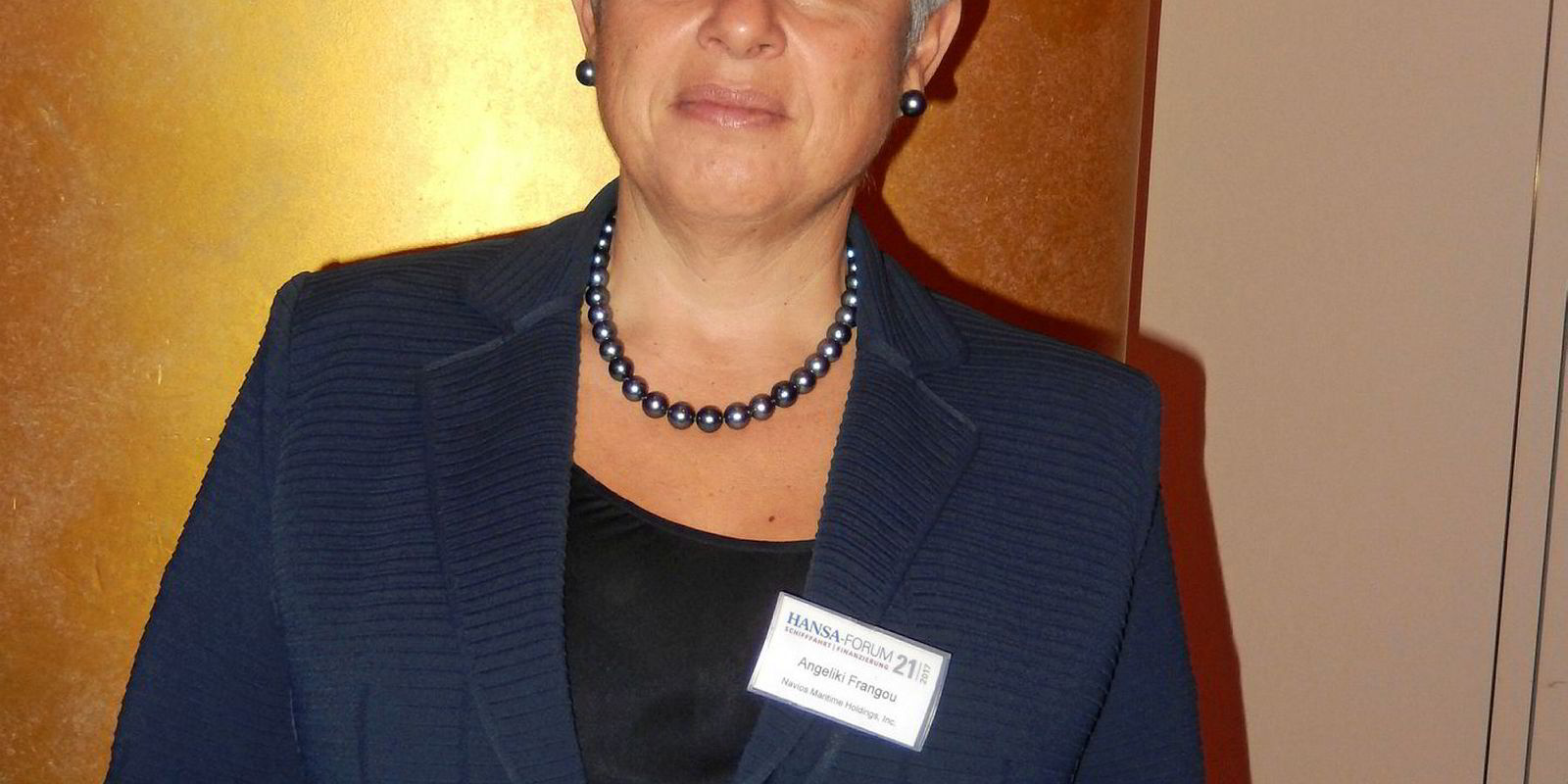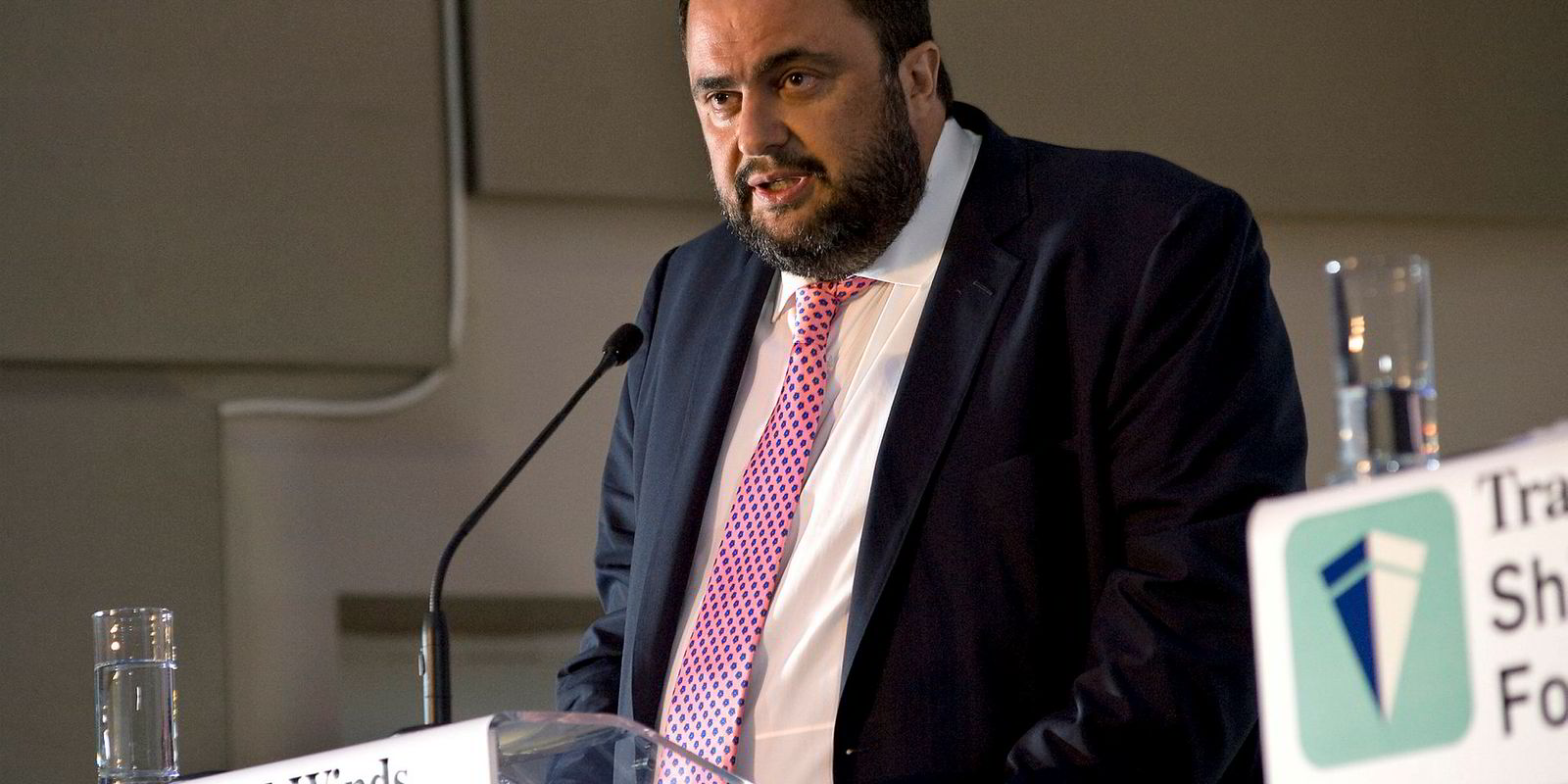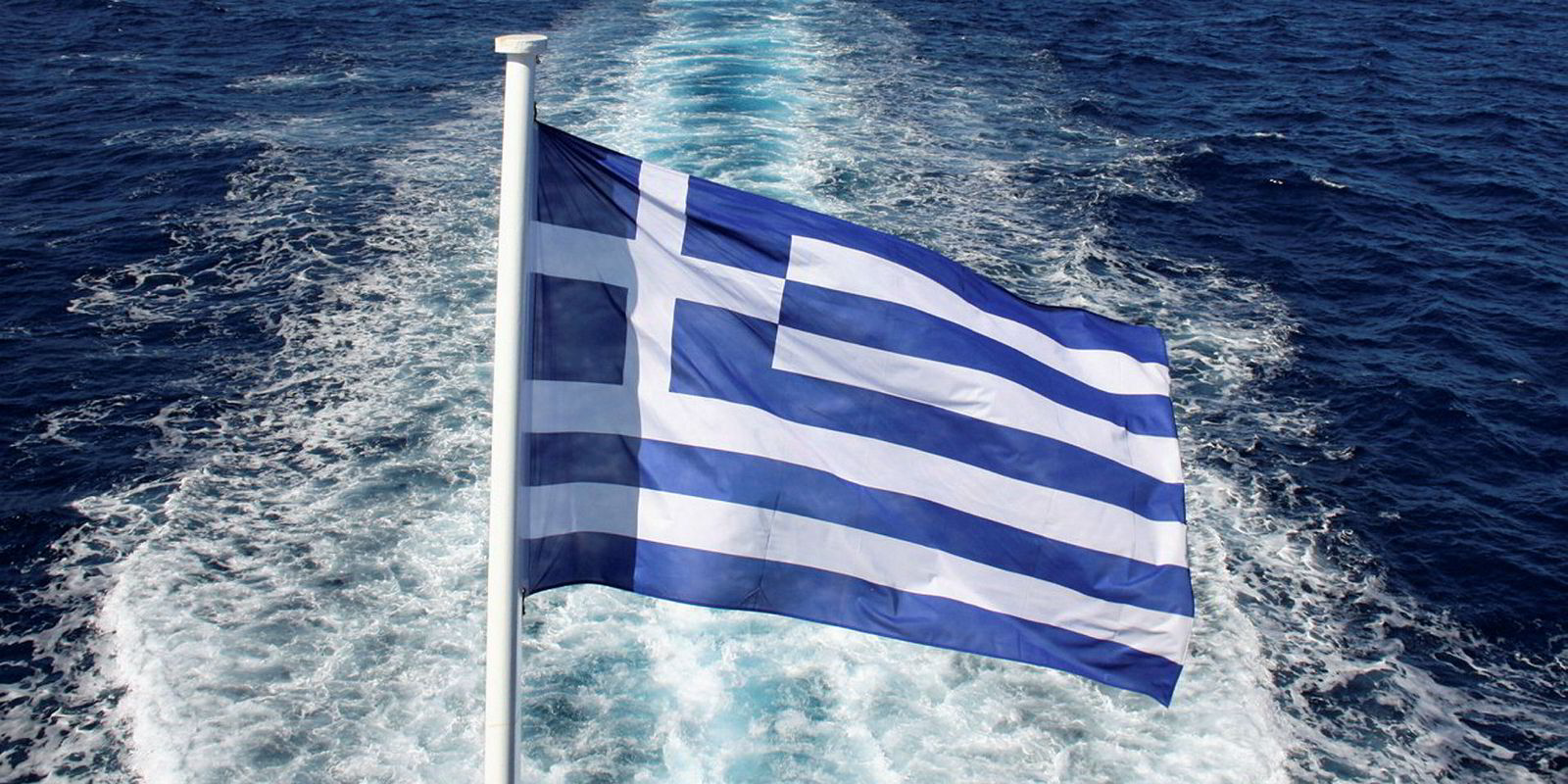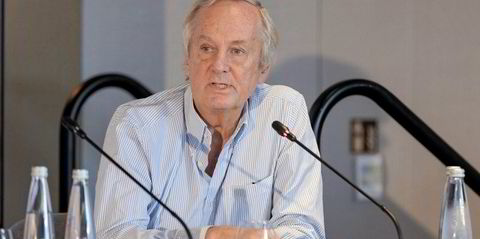In a year characterised by a global shipping revival, Greek shipowners showed a renewed appetite to buy containerships in 2017.
Bold forays by major players such as Angeliki Frangou made a clear impact on Greek sale-and-purchase patterns during the year.
Greeks more than tripled their spend on secondhand boxship tonnage between 2016 and 2017. Their total spend rose to $582m from $159m, according to data compiled by TradeWinds from confirmed and finalised deals.
In 2016, boxships accounted for 5.3% of the overall $3bn Greeks spent on S&P deals. In 2017, that share nearly tripled to 14%.

Foremost among those pouncing on boxship tonnage was Frangou and her Navios Maritime group, who moved in familiar, bank-driven circles in Germany to buy up 20 containerships for about $230m, primarily from Rickmers.
Foremost among those pouncing on boxship tonnage was Frangou and her Navios Maritime group, who moved in familiar, bank-driven circles in Germany to buy 20 containerships
However, others were not too far behind. Evangelos Marinakis, of Capital Maritime & Trading and its group of companies, is believed to have spent about $150m on five large boxships from the former Hanjin Shipping fleet. Nikolas Pateras continued amassing small feederships, while Andreas Hadjiyiannis of Athens-based Cyprus Sea Lines channelled a large part of his considerable optimism on the state of shipping markets towards the boxship acquisitions.
Were it not for this spending spree, 2017 would not look dramatically different to 2016 in terms of Greek vessel buying.
In 2016, Greek interests bought about 260 secondhand bulkers, tankers and boxships for an estimated $3bn, while selling 153 such vessels for $1.8bn. In 2017, the picture was almost identical. Greeks have bought at least 270 vessels in confirmed deals for an estimated $4.1bn while selling about 150 for $2.1bn, according to TradeWinds data.
This aggregate data conceals some interesting trends. One is the return or debut of several Greek shipping names in the dry bulk market.

Most of the estimated $420m that George Economou — the top Greek buyer — spent on ship purchases in 2017 went on nine bulkers he picked up in the first months of the year.
Adamantios Lemos-controlled Unisea is believed to have spent about $80m on bulkers. Paris Kassidokostas-Latsis, Mytilineos family backed M/Maritime and Ismini Panayiotides-led Pavimar have made significant purchases, as did Thanassis Martinos-controlled Eastern Mediterranean Maritime.
Some early movers who picked up tonnage when dry bulk values were at their nadir in early 2016 have already flipped them in successful asset plays. Among them is AM Nomikos, which in 2017 resold all but one of seven bulkers it had purchased the year before from the fleet of defunct Maritime Equity Partners — most likely at a considerable profit.
However, as a rule Greeks are holding onto the vessels they purchased in 2016, in the belief that dry bulk markets could rise further.
Greeks continued to use the S&P market to renew their dry bulk fleets. The average age of the dry bulk vessels they bought in 2017 was eight years — far below the average age of 15 years of the vessels they sold in the same period, mostly to Far Eastern buyers.
However, tankers are a different story: the average age of units Greeks bought in 2017 was 12 years — three years older than the tankers they sold. Another interesting feature is that Greek-on-Greek S&P deals are much more frequent in tankers than in bulkers.
Economou apart, the most notable Greek buyers of tanker tonnage in 2017 were Onassis company Olympic Shipping, which spent about $272m in four resale deals, Yannis Procopiou-led Centrofin, which bought four tankers while selling three bulkers, and George Procopiou and Adam Polemis, who purchased three or four tankers each — about the same as Vardinoyiannis Group company Avin International.
Alafouzos-controlled Kyklades Maritime was the busiest seller, with five units sold, most probably to raise cash for a spate of VLCC newbuildings in Korea.




